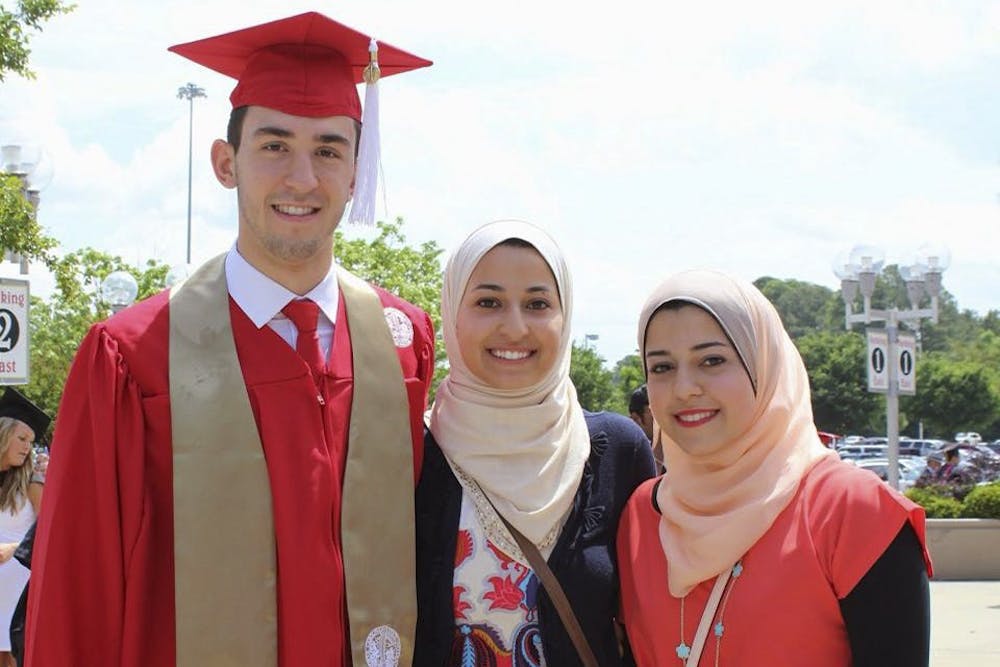Every seat in Durham County Courthouse room 7D was filled with the friends, family and supporters of three Muslim American students who were murdered in Chapel Hill over four years ago.
After district and superior court Judge Orlando Hudson read the sentence aloud to the solemn room, the crowd emptied into the hallway, embracing one another and wiping away tears.
For the families of Deah Shaddy Barakat, Yusor Mohammad Abu-Salha and Razan Mohammad Abu-Salha, it was a small moment of justice. It was also the legal end to a tragedy that rocked Chapel Hill, the state and the world, that ignited significant discussions about hate crimes and Islamophobia, and that created a tradition of public service at the UNC Adams School of Dentistry for #OurThreeWinners.
Craig Hicks, the man charged with the 2015 murders, was sentenced to three consecutive life sentences for the killings, as well as 64 to 89 months for discharging a weapon into an occupied dwelling, on Wednesday, June 12. He pleaded guilty to all charges.
“He did not shoot the first available people, someone in the parking lot,” Kendra Montgomery-Blinn, Durham County assistant district attorney said. “He didn’t shoot at somebody passing by. He chose them.”
Deah Barakat, a UNC dental student, Yusor Abu-Salha, who was about to enter the UNC Adams School of Dentistry and Razan Abu-Salha, an N.C. State undergraduate student, were murdered in Deah Barakat and Yusor Abu-Salha’s home while having dinner on Feb. 10, 2015. Deah Barakat and Yusor Abu-Salha had gotten married only six weeks before their deaths.
Chapel Hill Police originally attributed the murders to a parking dispute between the newlywed couple and Hicks. Hicks routinely had aggravated encounters with neighbors over parking rules.
The families of the victims said confrontations with neighbors and anti-religion social media posts proved otherwise. Hicks’s confrontations were more aggressive when he was dealing with non-white neighbors, prosecutors said. He often tried to intimidate non-white neighbors by showing the outline of a gun tucked into his clothing.
On the night of the murders, Hicks went to the home of Deah Barakat and Yusor Abu-Salha with one of the several firearms he owned. When Hicks arrived at their door, Deah Barakat took out his phone to record the interaction. Prosecutors said Deah Barakat was collecting evidence to aid him and his wife in getting a restraining order against Hicks.



